Commuters blame new station for 'constant congestion'
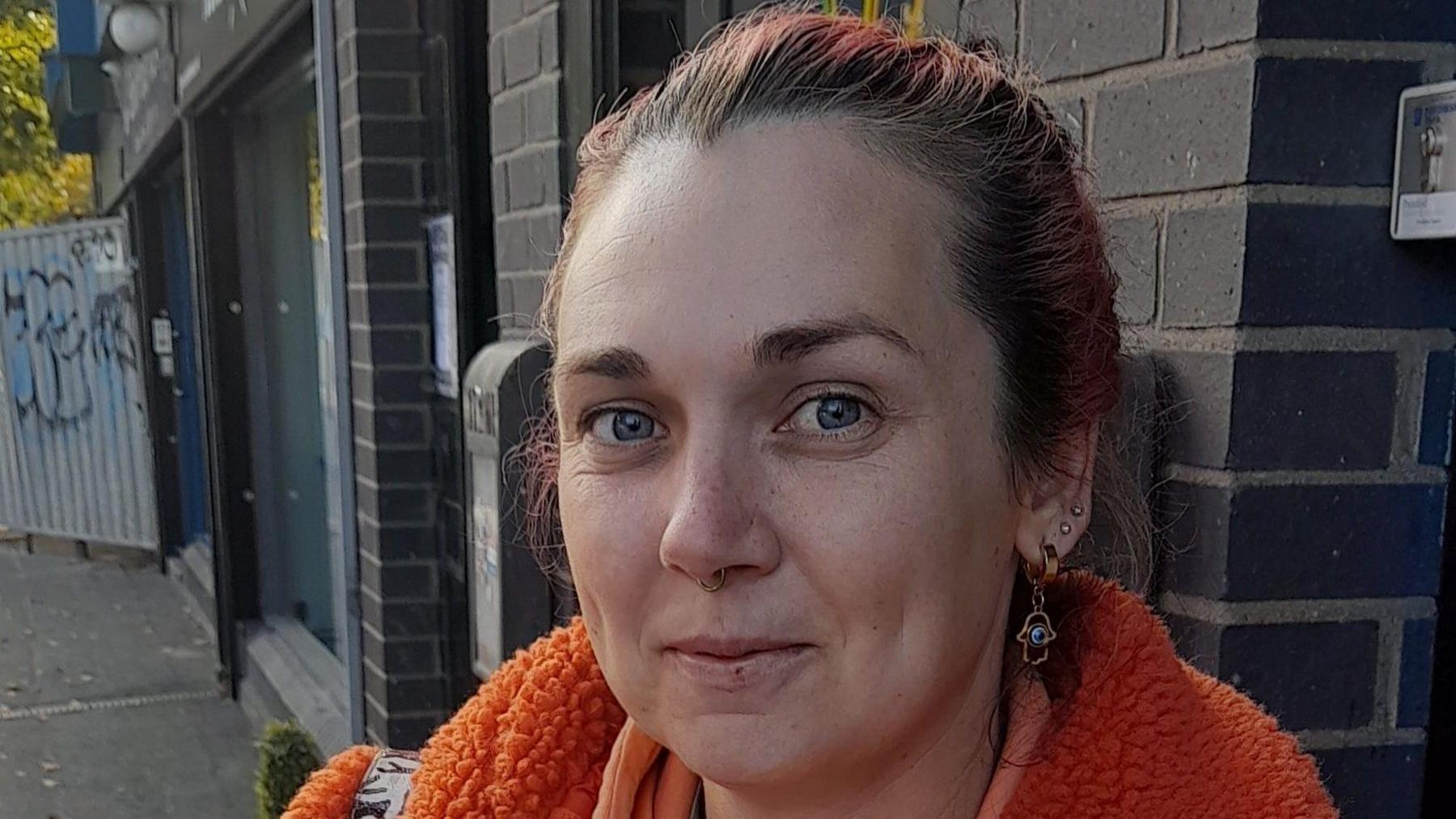
Jamie-Lee Peden said the traffic during rush hour in Sandy Row is "crazy"
- Published
Some people in Belfast have said the new Grand Central Station is causing traffic delays for people coming into the city.
One woman said there was "constant congestion" around the new station since it had been built.
Translink's chief executive Chris Conway said the company was working to ensure the work it was carrying out was properly managed, but added that some disruption was inevitable.
And more major roadworks are to begin on Wednesday, as resurfacing work - scheduled to take five months - starts on the Sydenham Bypass in east Belfast.
Get in touch
What are your experiences of traffic coming into Belfast?
'It's been crazy getting in'
BBC News NI spoke to some people about how increased traffic congestion is affecting their daily lives.
Jamie-Lee Peden, who is originally from Sandy Row, now travels there for work from Bangor.
She said the area around the station was now beset with "constant congestion" and she now has to go to work earlier so she can leave earlier and be able to collect her children from school.
"It's been crazy, getting in and out," she said.
"I did get stuck going through Sandy Row, which is about a mile, for about 45, 50 minutes."
She told BBC News NI the increase in congestion was "100% since the station" opened.
"I’ve also noticed with the temporary traffic lights that they’re not in sync," she said.
"So when there’s a back-up of traffic that needs to turn onto the Grosvenor Road, as that light turns green, these [other lights] are still red to let the pedestrians across, so the pedestrians are getting priority."
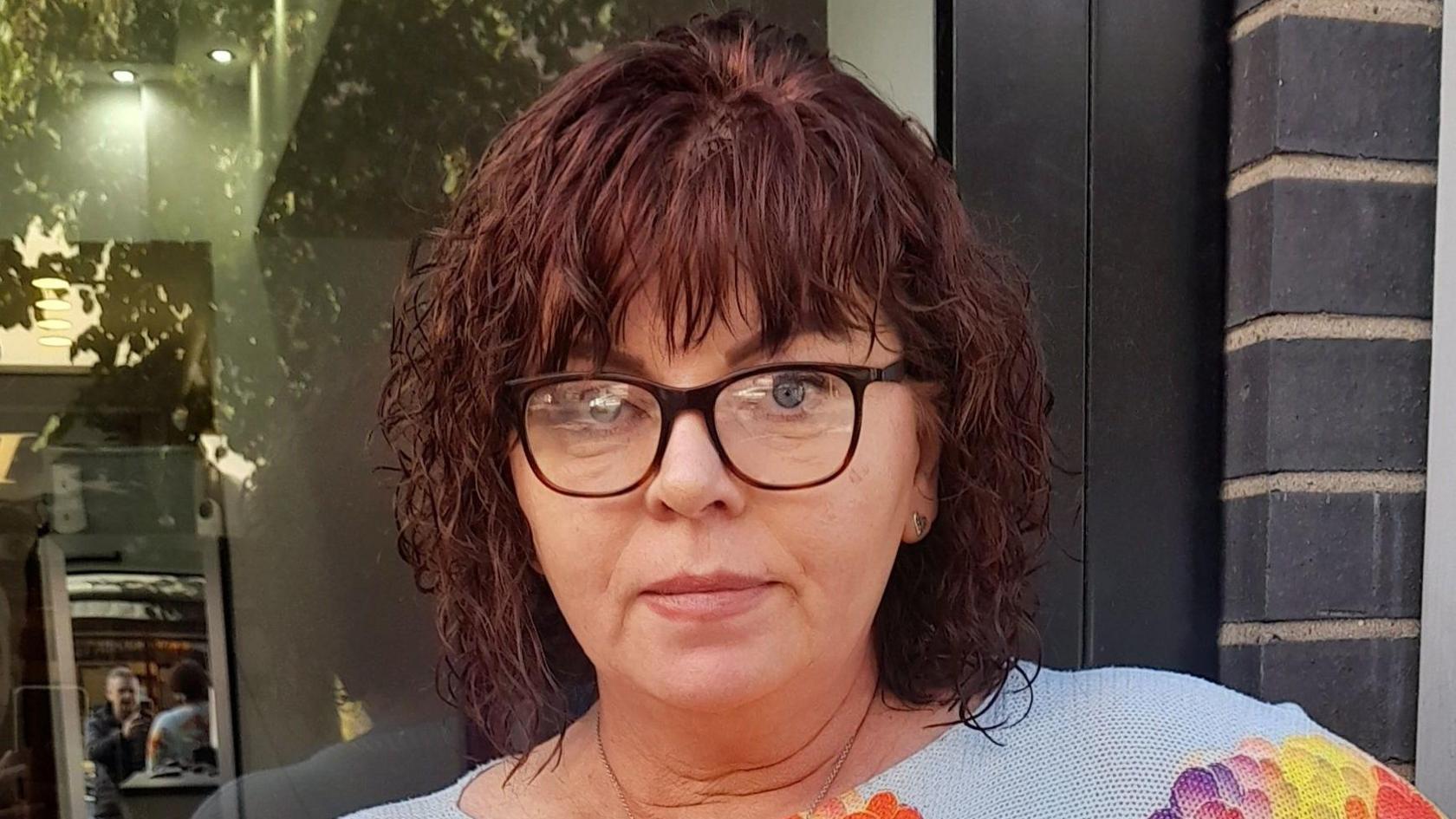
Anna Karbowiak says a journey that can take her 12 minutes on a Sunday takes an hour and twenty minutes during the morning rush hour
Anna Karbowiak, who owns a shop in Sandy Row, said she often stays hours after closing to avoid heavy traffic.
"I finish at five o’clock, but I stay until seven o’clock sometimes because then I’m driving for just half an hour; if I leave here at five o'clock, I’m driving for one hour home because of the traffic," she said.
"In the morning it’s the same situation when I go to work.
"On Sundays, it takes 12 minutes."
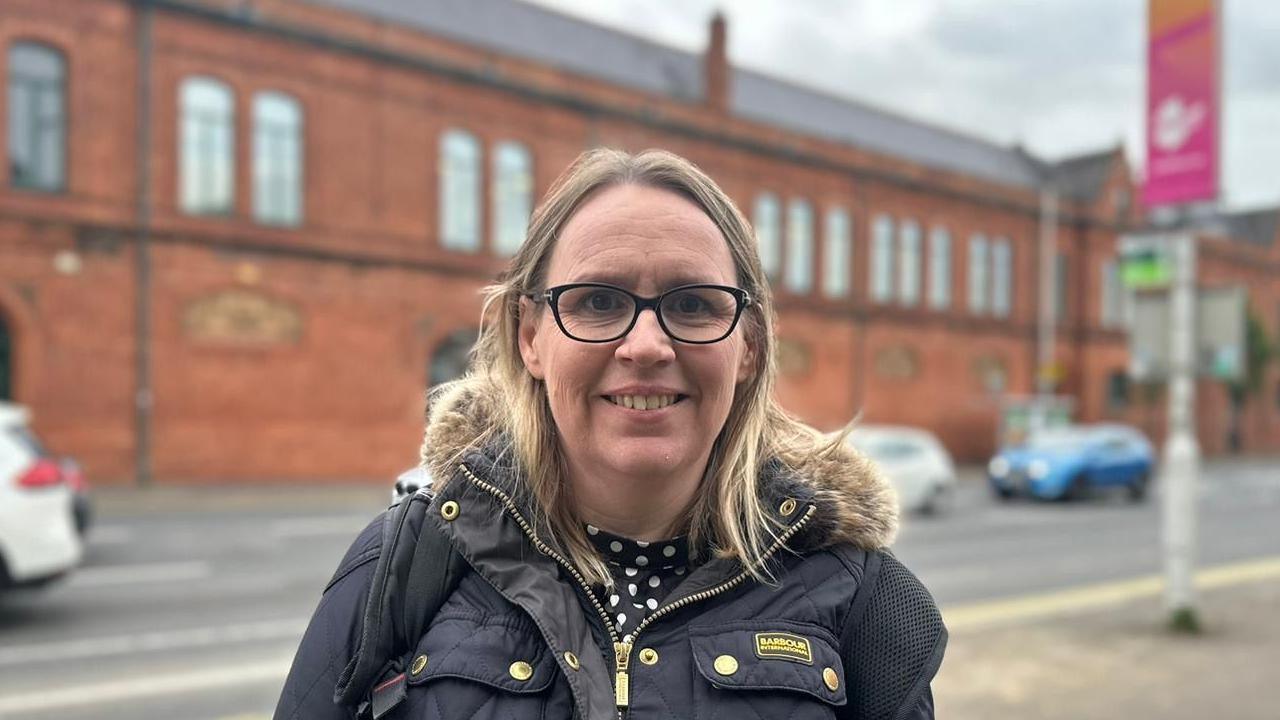
Jane Gill says the traffic has been having an impact on her journey
Jane Gill, who travels from Killinchy to Belfast, said the traffic has got worse, comparing her journey to pre-Covid where "you would have flew through" local villages.
“I would say at the minute, it’s about 30 minutes longer, certainly this morning it was 30 minutes longer than usual," she said.
“Well my problem is I’m dropping kids off at nursery at half seven to try and get into city centre and then the knock-on effect.
"But even I’m finding my journey in Ballygowan and Moneyreagh really slow to get through.
"So I’m hitting Belfast later than usual.”

Colin Tang said his journey is taking him an extra 15 to 20 minutes
Commuting from Ballymena to work in Belfast city centre, Colin Tang said that his journey has increased by an extra 15 to 20 minutes when compared to last year.
He believes that the new Grand Central Station is having an impact on city congestion "due to the roadworks".
Mr Tang said that it is a matter of having to work around it.
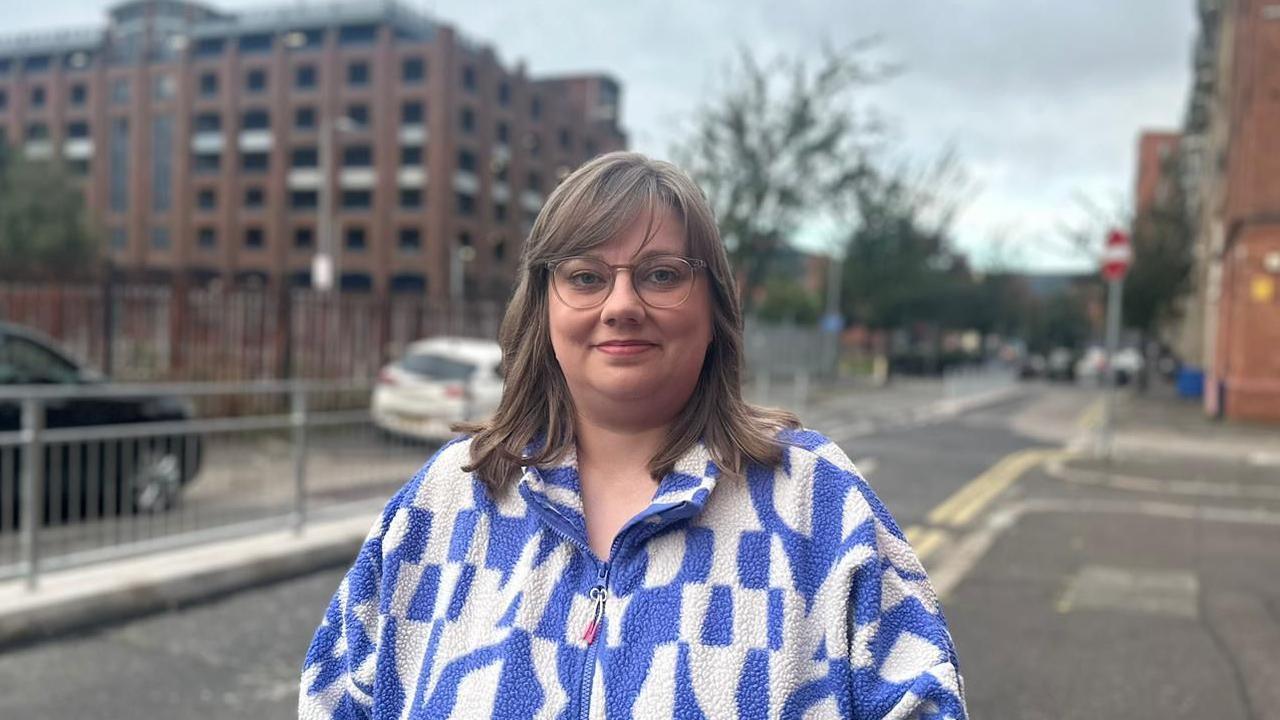
Terri McCurley commutes from Carrickfergus to work in Belfast
Also faced with roadworks on her journey to work in Belfast is Terri McCurley from Carrickfergus.
“It's taking me nearly an hour to travel from Carrickfergus, any morning that I’m here and usually it would take me about 15 to 20 minutes," she said.
“I’m nearly arriving into work late every time and that's putting me on edge then because I’m making the time up."
What is the new Belfast Grand Central Station?
Grand Central Station opened to the public on Sunday.
The £340m public transport hub has been built behind the previous bus and rail stations serving Belfast.
Translink has estimated the new Grand Central Station will cater for up to 20 million journeys a year.
What is the environmental cost of NI's car dependency?
- Published9 September 2024
Public transport in NI: Your questions answered
- Published10 September 2024
Grand Central Station opens to the public
- Published8 September 2024
Speaking to BBC News NI's The Nolan Show, Translink's Chris Conway said Grand Central Station would benefit future generations and that "some short-term disruption is inevitable".
"What we've been doing is working very closely with DfI [Department for Infrastructure] and the Roads Service to make sure that anything we do on a temporary crossing basis, anything we do to ensure safe access for our passengers, is properly managed," he said.
"We'll continue to monitor that, take feedback and review our options as we go forward.
"Belfast is a compact city, it has got finite road space and we know that congestion has been increasing over the years and when anything happens in Belfast it causes major disruption."
The new transport hub cost £340m and Translink estimates it will cater for up to 20 million journeys a year.
'Please plan ahead'
A spokesperson for DfI said: "We understand that traffic delays are frustrating, and we encourage travellers to avoid the congestion by considering other sustainable and active modes of travel such as public transport, using the park and ride sites or by walking or cycling.
"If you do travel by car, please plan ahead and leave extra time for your journey.
"Records show that between 50 and 55% of traffic in Belfast has no destination in the city centre so please consider other routes where possible."
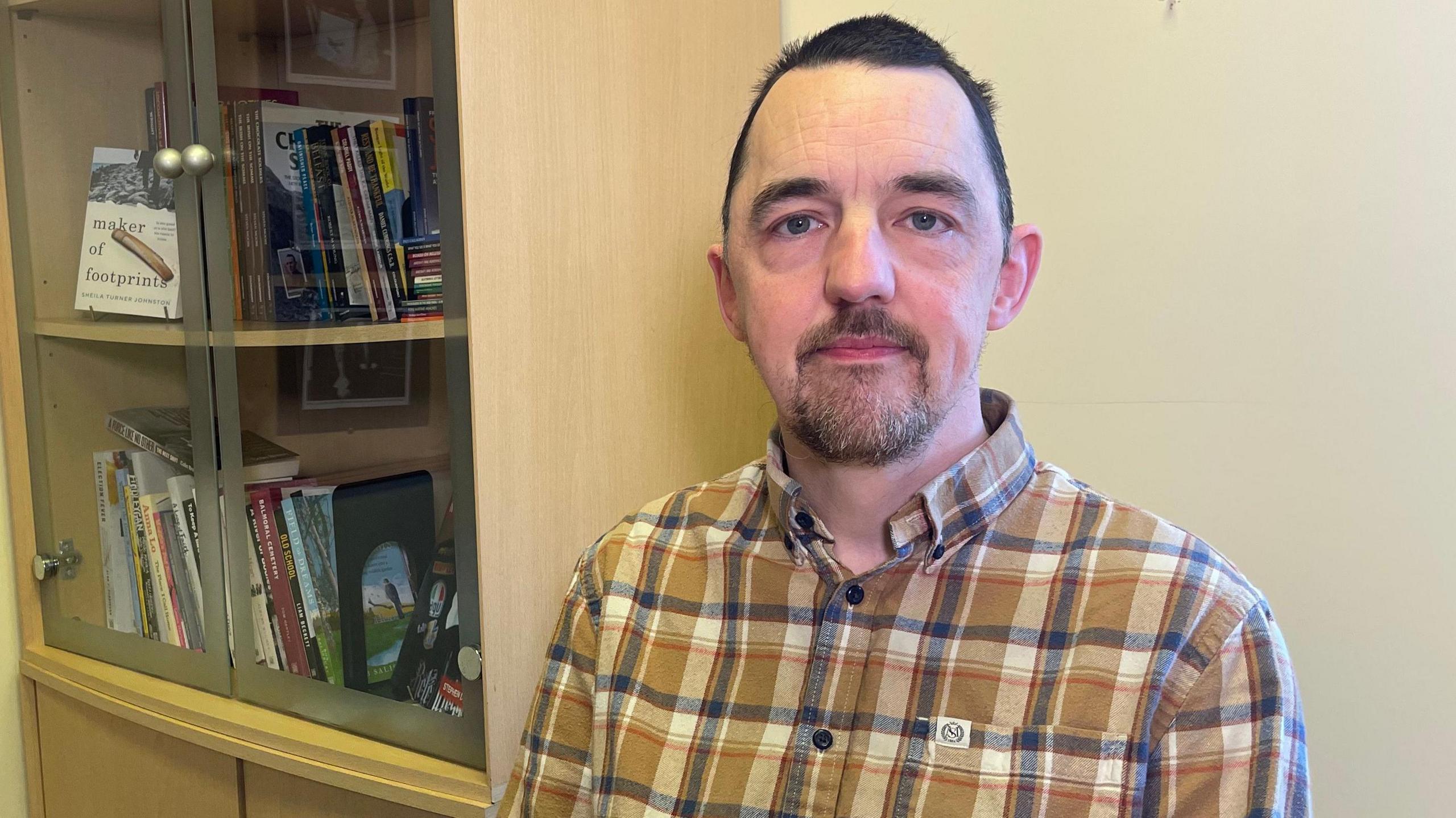
Wesley Johnston said the congestion in Belfast is likely to get worse before it gets better
Wesley Johnston, a researcher with expertise on Northern Ireland's roads, said complaints about congestion seemed to be specifically concentrated around the new station.
He said there were a number of issues around the hub which were affecting traffic.
"DfI has installed two new pedestrian crossings—one of them on Durham Street at Boyne Bridge and the other one’s on Grosvenor Road—and I think those are causing new delays," he told BBC News NI.
"Those are necessary because there’s a lot more pedestrians having to walk across to the new station, so that’s why they’ve been installed.
"But because they’re new and are being well used, I think it's causing a lot of new delays.
"DfI can look at the timings on those, but they don’t want to remove them because it wouldn’t be safe."
He also said that reopening train links from Belfast to Lisburn and other stations to the south would help ease congestion, as commuters would be able to take the train again.
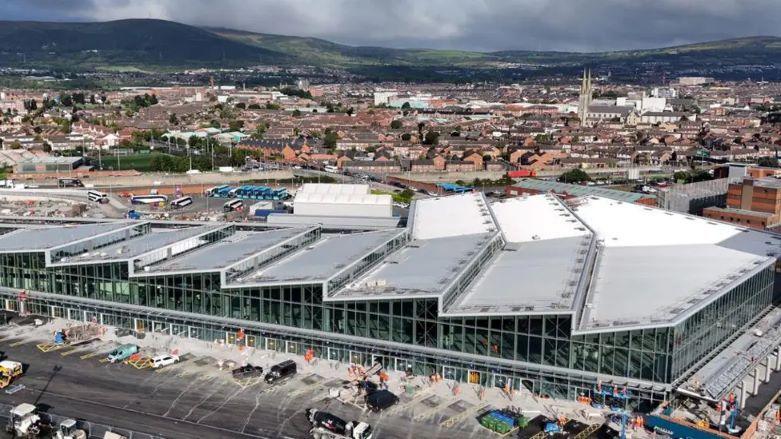
Grand Central Station in Belfast is expected to cost £340m
Mr Johnston said the lack of a dedicated drop-off point for taxis was also adding to disruption.
The bad news for drivers, he said, was that the situation was not going to improve any time soon.
"There will be further disruption when Boyne Bridge is demolished later this year, so that road will be closed completely at that point," he said.
"If you pushed the DfI, I think they’d say we have a hierarchy of road users in the city centre, and private cars do come bottom of the heap, so they are prioritising pedestrians and public transport.
"There isn’t going to be a situation where they change everything so that the cars can move freely; it’s just not going to happen."